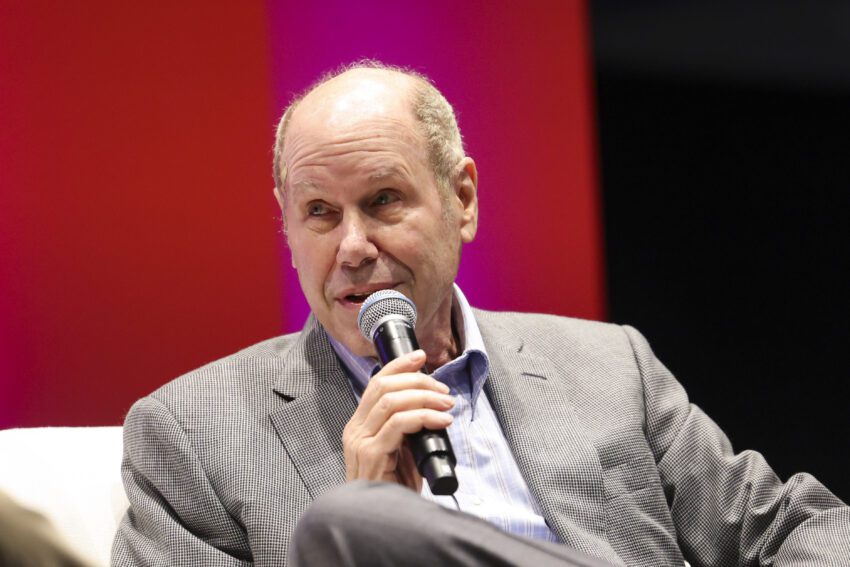
ex-disney ceo michael eisner calls the fcc Former Disney CEO Michael Eisner has publicly criticized current CEO Bob Iger’s decision to place “Jimmy Kimmel Live!” on indefinite pause, labeling the actions of the FCC under Chairman Brendan Carr as “out-of-control intimidation.”
ex-disney ceo michael eisner calls the fcc
Background on the Situation
The controversy surrounding “Jimmy Kimmel Live!” stems from threats made by Brendan Carr, who was appointed to the Federal Communications Commission (FCC) by former President Donald Trump. Carr’s comments have raised concerns about government overreach and censorship, particularly in the realm of entertainment and media. The FCC, which regulates interstate and international communications by radio, television, wire, satellite, and cable, has significant influence over broadcasting standards and practices.
In light of these threats, Iger made the decision to pause the show indefinitely, a move that has sparked debate among industry insiders and media commentators. Eisner, who led Disney for 21 years and was instrumental in its acquisition of ABC in 1995, has voiced his disapproval of this decision, questioning the leadership qualities of his successor.
Michael Eisner’s Perspective
Eisner took to social media platform X to express his concerns regarding the current state of leadership within the entertainment industry. He remarked, “Where has all the leadership gone?” This statement reflects his belief that Iger’s decision represents a capitulation to external pressures rather than a demonstration of strong leadership.
Throughout his tenure at Disney, Eisner faced numerous challenges and pressures, including political and social influences. Notably, he once opted to suppress the theatrical release of Martin Scorsese’s film “Kundun” due to pressure from the Chinese government. This decision was controversial, as it raised questions about artistic freedom and corporate responsibility. Eisner’s past experiences seem to inform his current critique of Iger’s actions, suggesting that he believes in standing firm against external pressures rather than yielding to them.
The Implications of Iger’s Decision
Iger’s decision to pause “Jimmy Kimmel Live!” has broader implications for the entertainment industry. By acquiescing to the threats from the FCC, Iger may be setting a precedent that could affect how media companies respond to government scrutiny in the future. This situation raises important questions about the balance between corporate interests and governmental authority.
Furthermore, the decision could have a chilling effect on creative expression within the industry. If media executives feel pressured to alter or suspend programming due to potential governmental repercussions, it may lead to a more homogenized media landscape where controversial or politically charged content is sidelined. This could stifle innovation and limit the diversity of voices and perspectives represented in mainstream media.
Stakeholder Reactions
The reactions to Iger’s decision and the FCC’s threats have been varied, with some industry stakeholders supporting the pause as a necessary precaution, while others echo Eisner’s concerns about leadership and censorship.
- Media Executives: Some executives have expressed understanding for Iger’s decision, citing the need to protect the company from potential backlash or regulatory action. They argue that navigating the complex landscape of media regulation requires a cautious approach.
- Creative Professionals: Many writers, producers, and performers have voiced their disappointment with the decision, viewing it as a capitulation to intimidation. They argue that creative expression should not be stifled by fear of governmental repercussions.
- Political Analysts: Analysts have noted that this situation reflects broader trends in the relationship between media and government. They argue that the FCC’s threats could be indicative of a growing willingness among government officials to exert influence over media content.
The Role of the FCC
The FCC’s role in regulating media has always been a contentious issue. Established in 1934, the agency was created to ensure that communication services are available to all Americans. However, its power has often been challenged, especially in the context of free speech and media diversity. Critics argue that the FCC’s actions can sometimes lead to censorship, particularly when it comes to politically sensitive content.
Brendan Carr’s tenure as FCC chairman has been marked by a series of controversial decisions and statements that have raised eyebrows among media professionals and advocates for free speech. His threats against “Jimmy Kimmel Live!” are seen by many as an attempt to exert control over the content that is broadcasted, which could have far-reaching implications for the industry.
Historical Context of Media Regulation
The current situation with “Jimmy Kimmel Live!” is not an isolated incident but rather part of a long history of media regulation and censorship in the United States. Over the decades, various administrations have attempted to influence media content, often citing national security or public decency as justifications.
For instance, during the McCarthy era, many artists and writers faced blacklisting for their political beliefs, leading to significant restrictions on creative expression. More recently, the FCC has been involved in debates over net neutrality and the regulation of online content, which further complicates the landscape of media freedom.
Comparative Analysis: Eisner vs. Iger
Michael Eisner and Bob Iger represent two different leadership styles and philosophies regarding corporate governance and creative expression. Eisner’s tenure was characterized by bold decisions and a willingness to take risks, often prioritizing creative integrity over external pressures. His decision to suppress “Kundun” is a testament to the complex interplay between corporate interests and artistic freedom.
In contrast, Iger’s leadership has been marked by a more cautious approach, particularly in the face of political pressures. While Iger has overseen significant growth and expansion for Disney, including the acquisition of Pixar, Marvel, and Lucasfilm, his recent decision regarding “Jimmy Kimmel Live!” raises questions about his willingness to stand firm against external influences.
Looking Ahead: The Future of Media and Leadership
The ongoing debate surrounding “Jimmy Kimmel Live!” and the FCC’s threats highlights the critical need for strong leadership in the media industry. As the landscape continues to evolve, media executives will need to navigate a complex web of regulatory pressures, public opinion, and creative expression.
Industry leaders must consider how to balance the demands of regulatory bodies with the need to foster an environment where creativity can thrive. This may involve advocating for policies that protect artistic expression and resist governmental overreach, ensuring that media remains a platform for diverse voices and perspectives.
Conclusion
Michael Eisner’s critique of Bob Iger’s decision to pause “Jimmy Kimmel Live!” serves as a reminder of the ongoing challenges faced by media executives in a politically charged environment. As the FCC continues to exert influence over broadcasting, the industry must grapple with the implications of such actions on creative freedom and leadership. The future of media will depend on the ability of leaders to stand firm against intimidation and prioritize the values of artistic integrity and free expression.
Source: Original report
Was this helpful?
Last Modified: September 20, 2025 at 3:38 am
1 views















